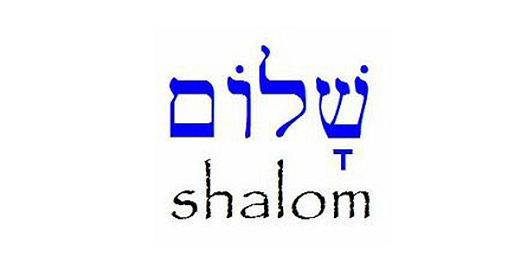“And there were in the same country shepherds abiding in the field, keeping watch over their flock by night. And, lo, the angel of the Lord came upon them, and the glory of the Lord shone round about them: and they were sore afraid. And the angel said unto them, Fear not: for, behold, I bring you good tidings of great joy, which shall be to all people. For unto you is born this day in the city of David a Saviour, which is Christ the Lord. And this shall be a sign unto you; Ye shall find the babe wrapped in swaddling clothes, lying in a manger.
And suddenly there was with the angel a multitude of the heavenly host praising God, and saying,
Glory to God in the highest, And on earth peace, Good will toward men.”
(Luke 2:7–14, KJV)
Christmas brings with it the promise of “peace.” This is an important word in the Bible.
The Greek word, eirēnē, corresponds to the Hebrew word, shalom.
“Seldom do we find in the Old Testament a word which to the same degree as shalom can bear a common use, and yet can also be filled with the concentrated religious content far above the level of the average conception.” (Gerhard Kittel and Gerhard Friedrich, Theological Dictionary of the New Testament (Grand Rapids, MI: Eerdmans, 1964), 2:402.)
In his excellent little book, Engaging God’s World: A Christian Vision of Faith, Learning, and Living, Cornelius Plantinga Jr. offers this definition of shalom:
“The webbing together of God, humans, and all creation in justice, fulfillment, and delight is what the Hebrew prophets called shalom. We call it ‘peace,’ but it means far more than just peace of mind or cease-fire between enemies…
…(it) means universal flourishing, wholeness, and delight–a rich state of affairs in which natural needs are satisfied and natural gifts fruitfully employed, all under the arch of God’s love. Shalom, in other words, is the way things are supposed to be.”
When looked through this lens, the mission of Jesus is to reverse the Fall’s destruction of shalom by way of inaugurating the kingdom of God.
Isaiah prophesied about the coming Messiah, in terms that are loaded with depth of meaning.
For to us a child is born, to us a son is given, and the government will be on his shoulders.
And he will be called Wonderful Counselor, Mighty God, Everlasting Father, Prince of Peace. (Isaiah 9:6, NIV)
Mike Wittmer writes,
“(Isaiah) envisions a day when God’s chastened people will return to the land and be governed justly by the Prince of Peace. This fighter for shalom will not only restore proper order to society but also remove the debilitating sin of its members by suffering in their place. In the words of Isaiah, the coming Messiah ‘was pierced for our transgressions, he was crushed for our iniquities; the punishment that brought us peace (shalom) was upon him, and by his wounds we are healed. (Isaiah 53:5)” (Heaven is a Place on Earth: Why Everything You Do Matters to God, p 109)
This is fulfilled in the person of Jesus, as the Christmas hymn Joy to the World puts it,
“No more let sins and sorrow grow;
Nor thorns infest the ground;
He comes to make His blessings flow;
Far as the curse is found.”
In Jeremiah 29, God sent a letter to the Israelites who had been carried away to Babylon, commanding them to:
“seek the shalom of the city to which I have exiled you, and pray on its behalf to the Lord, for in its shalom there will be shalom for you.” (Jeremiah 29:7)
That is an amazing command. These are the godless Babylonians! And God wants his people to bless them!
Christopher JH Wright gets it right when he says,
“The exiles had a task—a mission no less—even in the midst of the city of their enemies. And that task was to seek the welfare of that city and to pray for the blessing of YHWH upon it. So they were not only to be the beneficiaries of God’s promise to Abraham…they were also to be the agents of God’s promise to Abraham that through his descendants the nations would be blessed.” (The Mission of God, 99-100).
How can we be a blessing to those around us, seeking shalom for our co-workers, our neighbors, and even our cities?
Do we pray for shalom for everyone we know?
Are we willing to do what it takes for them to experience shalom?
What do we need to do to change how we engage in our vocations to be instruments of shalom?




